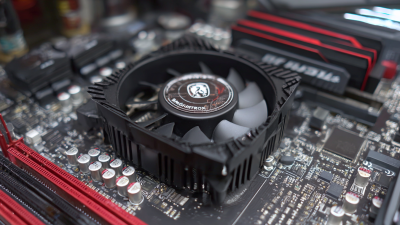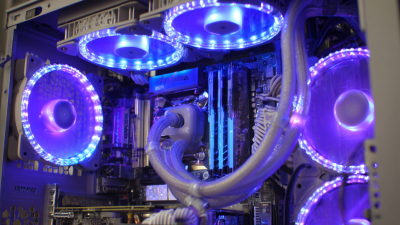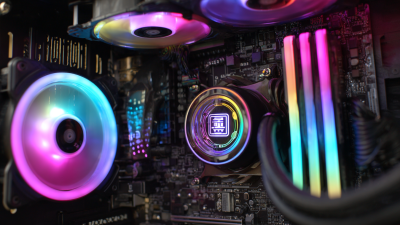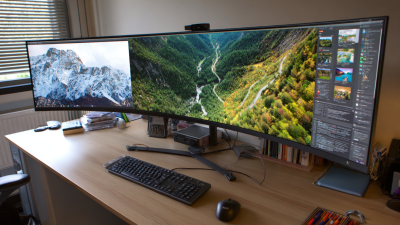Leave Your Message
- Phone
- E-mail
- Whatsapp


Effective PC cooling is essential for maintaining optimal performance and extending the lifespan of computer components. According to a 2022 industry report by ResearchAndMarkets, the global PC cooling market is expected to reach $5.43 billion by 2026, driven by the increasing demand for high-performance computing and gaming systems. As processors continue to evolve, with TDP (Thermal Design Power) ratings rising significantly, efficient thermal management has never been more critical. Overheating can lead to throttled performance and hardware failure, making PC cooling a vital consideration for both gamers and professionals alike. In this context, understanding the best strategies for effective PC cooling not only enhances system stability but also contributes to a quieter and more energy-efficient operation, factors that are increasingly valued in today's technology landscape.
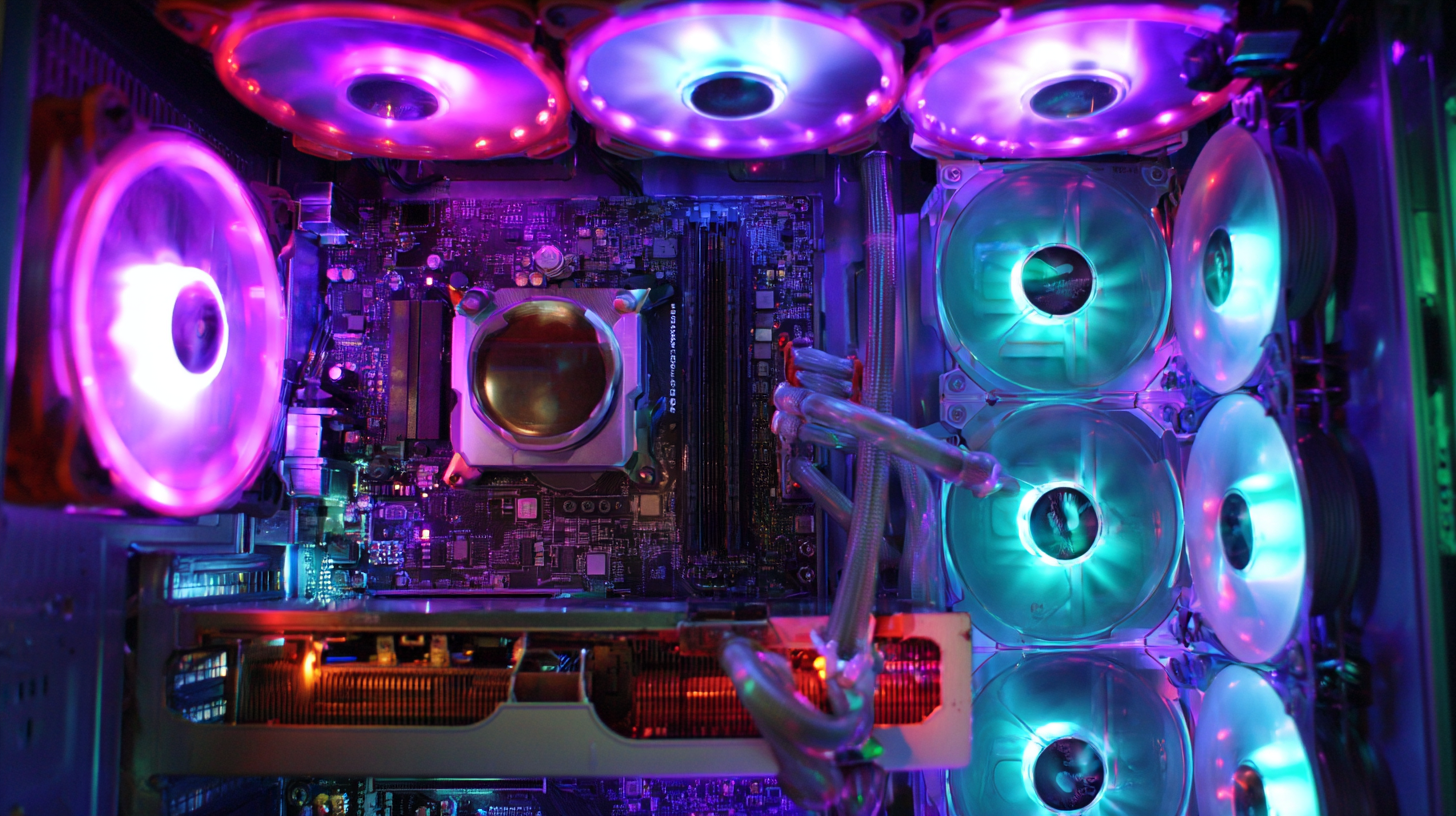
Effective cooling solutions are essential for maintaining optimal performance and longevity of personal computers. As PC components, such as central processing units (CPUs) and graphics processing units (GPUs), generate heat during operation, excessive temperatures can lead to throttling, instability, or even hardware failure. Therefore, understanding the importance of cooling is crucial for any PC user, whether they are building a custom rig or using a pre-built system.
Investing in effective cooling solutions not only enhances the overall performance of a PC but also promotes better energy efficiency. A cooler system can operate at peak performance levels without overheating, which can significantly improve user experience during demanding tasks like gaming or heavy multitasking. Additionally, maintaining a consistent, lower operating temperature can extend the lifespan of critical components, ultimately saving users from costly replacements and repairs in the long run. Understanding these dynamics is integral to making informed decisions when it comes to selecting and implementing the right cooling strategies for your setup.
When it comes to maintaining optimal performance and longevity of PC components, choosing the right cooling system is essential. The three primary types of cooling systems are air, liquid, and phase change cooling, each with its distinct advantages and suitable applications.
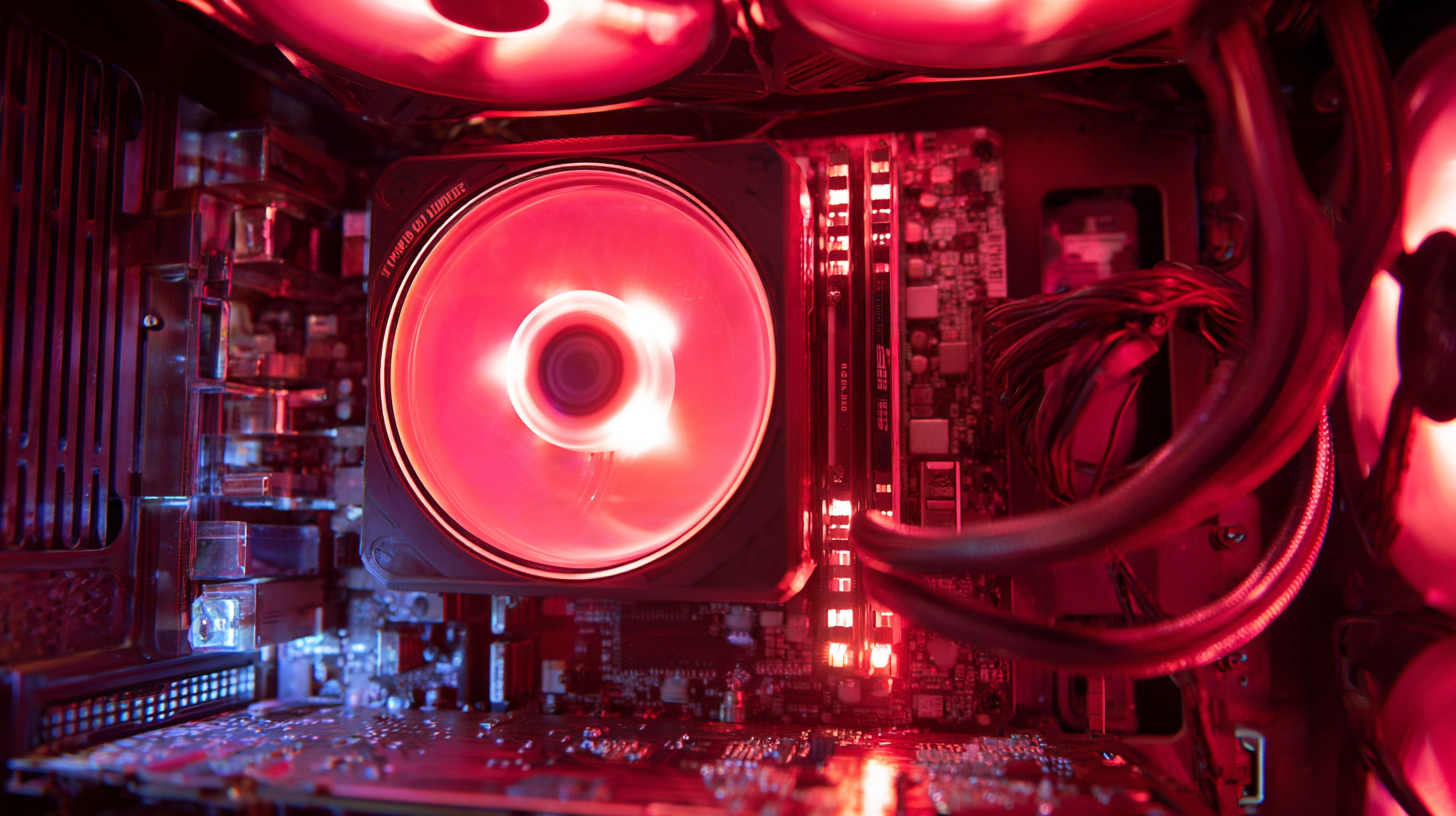
Air cooling, widely regarded for its simplicity and cost-effectiveness, utilizes fans and heatsinks to dissipate heat. According to a 2022 report by Tech Insights, around 70% of gamers still prefer air cooling solutions due to their affordability and ease of installation. However, as overclocking becomes more popular, the limitations of air cooling in extreme scenarios are increasingly apparent.
Liquid cooling systems, which can achieve lower operating temperatures, are becoming more prevalent in high-performance setups. A study by Cooling Tech Journal indicates that liquid cooling can enhance thermal performance by up to 30% compared to traditional air systems. It is particularly beneficial for enthusiasts who demand quieter operations and increased performance stability, especially in multi-GPU configurations.
Finally, phase change cooling, though more expensive and complex, offers unprecedented cooling for extreme overclocking scenarios, lowering temperatures below ambient levels. Reports suggest that while only 5% of PC users currently utilize phase change systems, their growth is expected as more users embark on overclocking ventures.
Effective PC cooling solutions are critical in maintaining performance, enhancing efficiency, and ensuring the longevity of components in high-demand environments. One of the primary factors influencing cooling efficiency is the design of cooling systems, which must adapt to rising computational workloads. Data from recent studies highlight that advanced cooling technologies, such as loop thermosyphon systems, can significantly mitigate risks associated with fan failures, which are notorious for compromising thermal safety in data centers. The effectiveness of these systems can be further augmented by integrating sustainable solutions like adsorption-based cooling systems, which utilize renewable energy sources to optimize energy use and performance.
Another key factor is the shift towards liquid cooling methods, driven by the increasing density of computing hardware. Reports indicate that modern liquid cooling systems can reduce reliance on traditional chillers by over 300%, providing efficient heat rejection capabilities essential for managing high-performance computing demands. Additionally, new innovations in cooling devices, such as solid-state active cooling solutions, offer substantial improvements in performance while maintaining compact designs. With continued advancements in cooling technologies and strategies, optimizing thermal management in PCs and data centers is becoming increasingly viable, ensuring robust operations even under demanding conditions.
| Cooling Method | Cooling Efficiency (%) | Cost ($) | Noise Level (dB) | Maintenance Frequency |
|---|---|---|---|---|
| Air Cooling | 75 | 50 | 30 | Every 6 months |
| Liquid Cooling | 90 | 120 | 25 | Every year |
| Phase Change Cooling | 95 | 300 | 40 | Every 2 years |
| Thermal Paste | 80 | 10 | N/A | Every 2 years |
| Peltier Cooling | 85 | 200 | 35 | Every year |
| Passive Cooling | 65 | 70 | Silent | N/A |
| Hybrid Cooling | 92 | 210 | 28 | Every year |
Optimizing airflow in your PC case is crucial for maintaining system stability and performance. According to industry data, effective cooling solutions can increase component longevity and enhance performance metrics, with optimal airflow leading to temperature reductions of up to 30% in high-performance systems. Ensuring that your case fans are positioned correctly—intake at the front and exhaust at the back—can create a balanced airflow that effectively removes heat from critical components like the CPU and GPU.
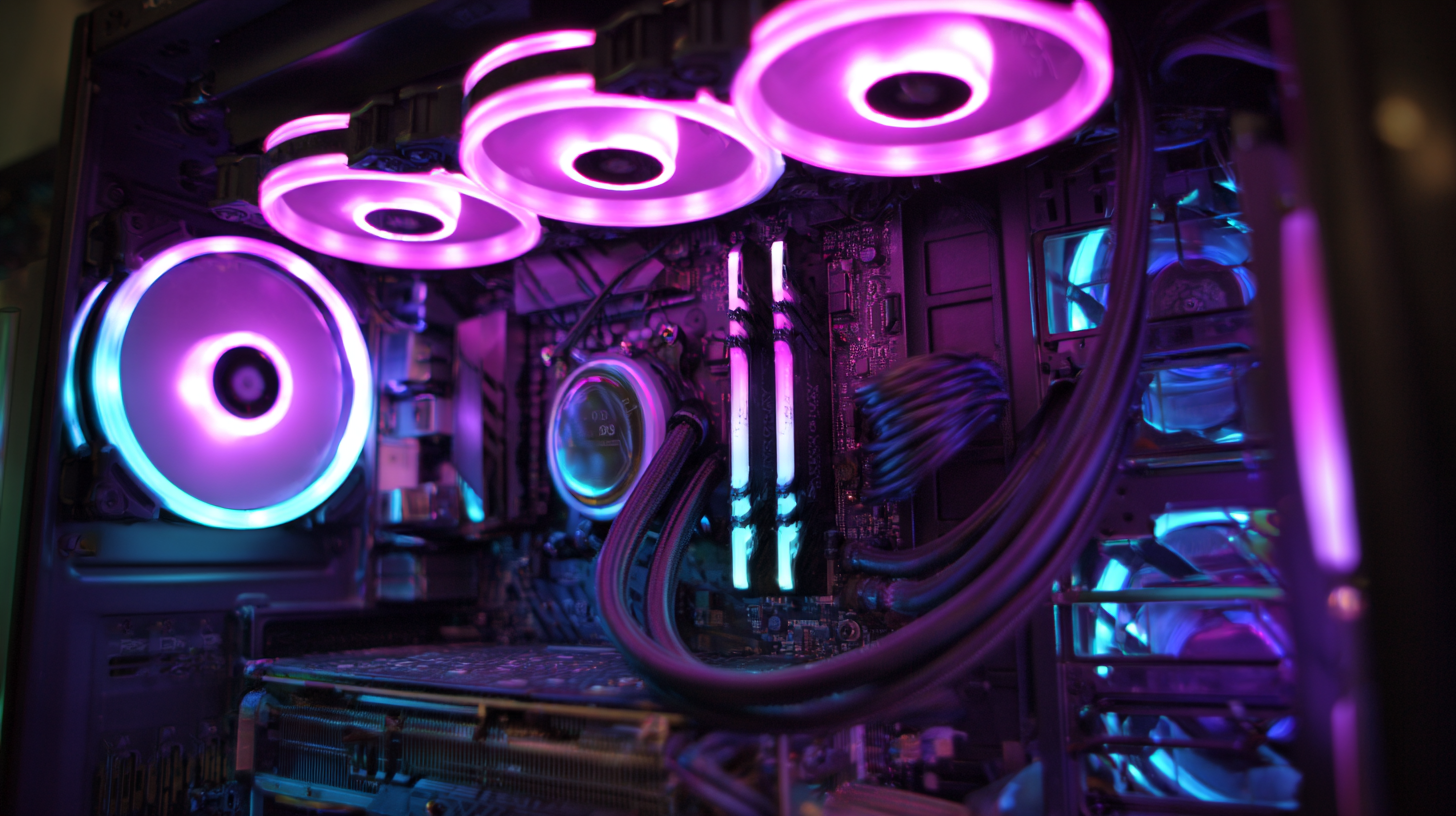
In addition to proper fan placement, managing cables within your case is essential. Organized cables not only improve the visual aesthetics of your PC but also reduce airflow obstruction. Data from thermal performance studies suggest that good cable management can improve overall cooling efficiency by as much as 15%, allowing your components to breathe easier and reducing the risk of overheating during intense gaming sessions. Furthermore, investing in quality cooling solutions such as high-performance fans and strategically designed cases can significantly enhance the cooling capabilities of your system, ensuring that you can push your hardware to its limits without sacrificing safety.
Maintaining an efficient cooling system is crucial for the longevity and performance of your PC. Regular cleaning is one of the simplest yet most effective maintenance practices. Dust accumulation can obstruct airflow and lead to overheating. Periodically opening your case and using compressed air to remove dust from fans, heatsinks, and vents can dramatically improve cooling efficiency. Incorporating dust filters can also prevent dust buildup in the first place, ensuring that your cooling system functions optimally.
Another essential practice is monitoring temperature levels through software tools. Keeping an eye on component temperatures allows you to identify issues before they lead to hardware failure. If temperatures are consistently high, it may be time to replace thermal paste on crucial components like the CPU and GPU. Additionally, ensuring proper cable management inside the case can enhance airflow and prevent hot spots, further supporting your cooling solutions. By committing to these maintenance practices, you can ensure that your PC cooling systems remain effective for years to come.
